Related Research Articles
Propitiation is the act of appeasing or making well-disposed a deity, thus incurring divine favor or avoiding divine retribution. It is related to the idea of atonement and sometime mistakenly conflated with expiation. The discussion here encompasses usage only in the Christian tradition.
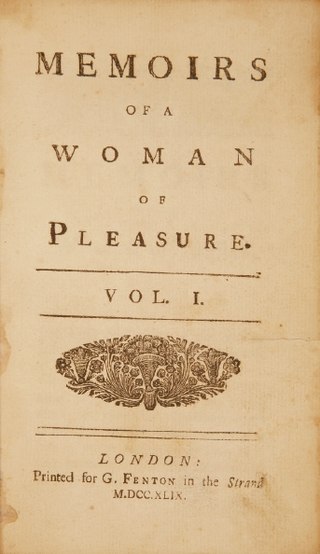
Memoirs of a Woman of Pleasure—popularly known as Fanny Hill—is an erotic novel by the English novelist John Cleland first published in London in 1748. Written while the author was in debtors' prison in London, it is considered "the first original English prose pornography, and the first pornography to use the form of the novel". It is one of the most prosecuted and banned books in history.
John Cleland was an English novelist best known for his fictional Fanny Hill: or, the Memoirs of a Woman of Pleasure, whose eroticism led to his arrest. James Boswell called him "a sly, old malcontent".

Charles Burney was an English music historian, composer and musician. He was the father of the writers Frances Burney and Sarah Burney, of the explorer James Burney, and of Charles Burney, a classicist and book donor to the British Museum. He was a close friend and supporter of Joseph Haydn.
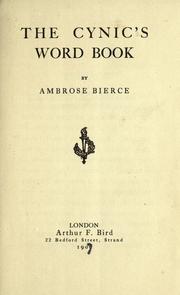
The Devil's Dictionary is a satirical dictionary written by American journalist Ambrose Bierce, consisting of common words followed by humorous and satirical definitions. The lexicon was written over three decades as a series of installments for magazines and newspapers. Bierce's witty definitions were imitated and plagiarized for years before he gathered them into books, first as The Cynic's Word Book in 1906 and then in a more complete version as The Devil's Dictionary in 1911.

The Rivals is a comedy of manners by Richard Brinsley Sheridan in five acts which was first performed at Covent Garden Theatre on 17 January 1775. The story has been updated frequently, including a 1935 musical and a 1958 episode of the TV series Maverick starring James Garner and Roger Moore, with attribution.

Rees's Cyclopædia, in full The Cyclopædia; or, Universal Dictionary of Arts, Sciences, and Literature was an important 19th-century British encyclopaedia edited by Rev. Abraham Rees (1743–1825), a Presbyterian minister and scholar who had edited previous editions of Chambers's Cyclopædia.

Elizabeth Inchbald was an English novelist, actress, dramatist, and translator. Her two novels, A Simple Story and Nature and Art, have received particular critical attention.
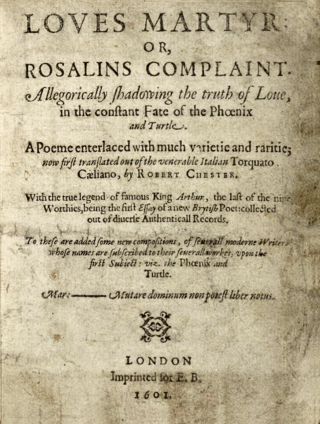
The Phoenix and the Turtle is an allegorical poem by William Shakespeare, first published in 1601 as a supplement to a longer work, Love's Martyr, by Robert Chester. The poem, which has been called "the first great published metaphysical poem", has many conflicting interpretations. The title "The Phoenix and the Turtle" is a conventional label. As published, the poem was untitled. The title names two birds: the mythological phoenix and the turtle dove.
Bartlett's Familiar Quotations, often simply called Bartlett's, is an American reference work that is the longest-lived and most widely distributed collection of quotations. The book was first issued in 1855 and is currently in its 19th edition, published in 2022.

Zzxjoanw is a fictitious entry in an encyclopedia which fooled logologists for many years. It referred to a purported Māori word meaning "drum", "fife", or "conclusion".

Ralph Griffiths was an English journal editor and publisher of Welsh extraction. In 1749, he founded London's first successful literary magazine, the Monthly Review (1749–1845), and remained its editor until his death in 1803.
The Reverend George William Lemon was the author of an early etymological dictionary of the English language, published in 1783.

William Kenrick was an English novelist, playwright, translator and satirist, who spent much of his career libelling and lampooning his fellow writers.
Elizabeth Moody was a British poet, and literary critic.
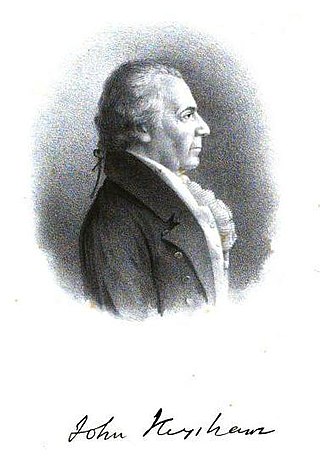
John Heysham M.D. (1753–1834) was an English physician, now remembered as a statistician.
The music articles in Rees's Cyclopaedia were Charles Burney's (1726-1814) final literary production, and form in effect the Dictionary of Music he never wrote. There were additional articles by John Farey, Sr. (1766-1826), and John Farey, Jr. (1791-1851). The listings show there are 1971 articles in total: Burney, 1752, Farey Sr. 215, and Farey Jr. 4.
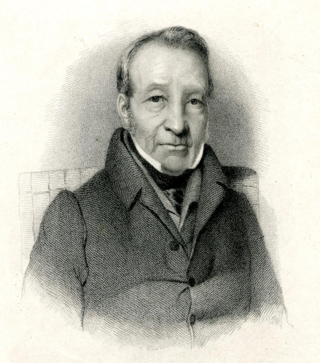
John Lawrence was an English writer on political and agricultural subjects and an early advocate of animal welfare and rights.

The Ring of Words: Tolkien and the Oxford English Dictionary is a 2006 book by three editors of the Oxford English Dictionary, Peter Gilliver, Jeremy Marshall and Edmund Weiner. It examines J. R. R. Tolkien's brief period working as a lexicographer with the OED after World War I, traces his use of philology as it is apparent in his writings, and in particular in his legendarium, and finally examines in detail over 100 words that he used, developed or invented.